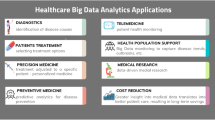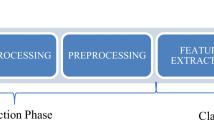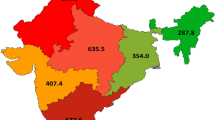Abstract
Purpose
The large burden of silicosis and tuberculosis (TB) in the South African mining industry, coupled with an under-resourcing of the compensation agencies responsible for certifying occupational lung disease, have resulted in serious backlogs. This work aimed to measure the efficiency gains from triaging occupational lung disease claims using claim type, years of mining exposure and computer aided detection (CAD) to save on scarce medical adjudicators.
Methods
During 2020, the compensation authority started to triage claims for TB and those of miners with < 10 years of service to two-person panels instead of the four-person panel plus radiologist used previously. Efficiency gain was calculated in medical person-units saved and reduction in delays. Different service thresholds predictive of silicosis were simulated, as well as the impact of pre-classification of chest X-rays with CAD using different combinations of sensitivity and specificity.
Results
The new triage system saved 20.3% in person-time units and reduced delays by 10–20 days. Without CAD the greatest efficiency gain (28%) was projected from dispensing with a mining service threshold and routing all non-TB claims to the small panels at the outset. Simulation of four different CAD sensitivity/specificity combinations yielded efficiency gains of 18.2–36.1%, with 31.1% judged the most realistic. Use of sensitivity of close to 100% would not be feasible because of the very low resulting specificity.
Conclusion
Pre-adjudication triage of claims at the compensation agency is capable of saving a substantial proportion of adjudicator time and reducing certification delays. Additional efficiency gains are achievable by referring all claims to small panels to begin with and improvement of CAD performance for this ex-miner population.


Similar content being viewed by others
Availability of data and material
The data used in this analysis are proprietary to the Q(h)ubeka Trust, the Medical Bureau for Occupational Disease, and the gold mining companies that contributed employment data to the MBOD database.
Code availability
Not applicable.
Notes
Excludes backlog claims not yet entered onto the electronic information system.
References
Adams S, Ehrlich R, Ismail N, Quail Z, Jeebhay MF (2013) Occupational health challenges facing the Department of Health. In: Padarath A, English R (eds) South African Health Review 2012/2013. Health Systems Trust, Durban, pp 67–82
Broughton T (2019) Landmark silicosis settlement made order of court. Groundup, 26 July. https://www.groundup.news/article/landmark-silicosis-settlement-made-order-court/ Accessed 15 May 2021
Brouwer DH, Rees D (2020) Can the South African milestones for reducing exposure to respirable crystalline silica and silicosis be achieved and reliably monitored? Front Public Health 8:107. https://doi.org/10.3389/fpubh.2020.00107
Ehrlich RI (2012) A century of miners’ compensation in South Africa. Am J Ind Med 55(6):560–569. https://doi.org/10.1002/ajim.22030
Ehrlich RI, Montgomery A, Akugizibwe P, Gonsalves G (2017) Health implications of changing trends in the origins and characteristics of mineworkers in South Africa, 1973–2012. BMC Public Health 18 (93) https://doi.org/10.1186/s12889-017-4640-x
Franzblau A, teWaterNaude J, Sen A, d’Arcy H, Smilg JS, Mashao KS et al (2018) Comparison of digital and film chest radiography for detection and medical surveillance of silicosis in a setting with a high burden of tuberculosis. Am J Ind Med 61(3):229–238. https://doi.org/10.1002/ajim.22803
Harris M, Qi A, Jeagal L, Torabi N, Menzies D, Korobitsyn A et al (2019) A systematic review of the diagnostic accuracy of artificial intelligence-based computer programs to analyze chest x-rays for pulmonary tuberculosis. PLoS One 3;14(9):e0221339. https://doi.org/10.1371/journal.pone.0221339
Khan FA, Pande T, Tessema B, Song R, Benedetti A, Pai M et al (2017) Computer-aided reading of tuberculosis chest radiography: Moving the research agenda forward to inform policy. Eur Respir J 50(1):1700953. https://doi.org/10.1183/13993003.00953-2017
Kistnasamy B, Mtshali N (2017) Compensation Commissioner for Occupational Diseases. Update to Portfolio Committee on Planning, Monitoring & Evaluation. 27 November. https://pmg.org.za/files/171129CCOD.pptx Accessed 29 May 2021
Kistnasamy B, Yassi A, Yu J, Spiegel SJ, Fourie A, Barker S et al (2018) Tackling injustices of occupational lung disease acquired in South African mines: recent developments and ongoing challenges. Global Health 14(1):60. https://doi.org/10.1186/s12992-018-0376-3
Knight D, Ehrlich RI, Fielding, K, Jeffery H, Grant A, Churchyard G (2015) Trends in silicosis prevalence and the healthy worker effect among active gold miners in South Africa BMC Public Health 15 (1258). https://doi.org/10.1186/s12889-015-2566-8
Knight D, Ehrlich R, Cois A, Fielding K, Grant A, Churchyard G (2020) Predictors of silicosis in an industry wide study of working gold miners. BMC Public Health 20:829. https://doi.org/10.1186/s12889-020-08876-2
Leger JP (1992) Occupational disease in South African mines - a neglected epidemic?. S Afr Med J 81(4):197–201
Maiphetlho L (2010) Ehrlich R (2010) Claims experience of former gold miners with silicosis – a clinic series. Occ Health Southern Afr 16:10–16
McCulloch J (2012) South Africa’s gold mines and the politics of silicosis. Johannesburg, James Currey
Minerals Council of South Africa (2020) Joint effort to improve the occupational lung disease compensation system. Fact sheet: https://www.mineralscouncil.org.za/search-results?q=compensation. Accessed 15 May 2021
ODMWA (2019) Occupational Diseases in Mines and Works, Act 78 of 1973 (Updated to 1 October 2019). http://www.saflii.org/za/legis/consol_act/odimawa1973385.pdf. Accessed May 15 2021
Park HH, Girdler-Brown BV, Ehrlich RI, White N, Churchyard G (2009) Incidence of tuberculosis and HIV and progression of silicosis and lung function impairment among former Basotho gold miners. Am J Ind Med 52(12):901–908. https://doi.org/10.1002/ajim.2076
Parliamentary Monitoring Group (2011) Minister and Department of Health on Compensation Commission for Occupational Diseases 2009/10 Annual Report: hearings. Cape Town: Parliamentary Monitoring Group. https://pmg.org.za/committee-meeting/12688/ Accessed 29 May 2021
Q(h)ubeka Trust (undated). https://www.qhubekatrust.co.za/ Accessed 15 May 2021
Spiegel J, Ehrlich R, Yassi A, Riera F, Wilkinson J, Lockhart K et al (2021) Using artificial intelligence for high-volume identification of silicosis and tuberculosis: A bio-ethics approach. Ann Glob Health 87(1):58. https://doi.org/10.5334/aogh.3206
Tshiamiso Trust (undated). https://www.tshiamisotrust.com/ Accessed 21 July 2021
Young C, Barker S, Ehrlich R, Kistnasamy B, Yassi A (2020) Computer-aided detection for tuberculosis and silicosis in chest radiographs of Southern African gold miners. Int J Tuberc Lung Dis 24(4):444–451. https://doi.org/10.5588/ijtld.19.0624
Acknowledgements
The authors thank the medical doctors who served on the panels and the administrative staff of the Medical Bureau for Occupational Diseases for their assistance. We also thank the trustees of the Q(h)ubeka Trust for permission to use anonymised information from the Trust database.
Funding
Funding was received from the Department for International Development (DFID), United Kingdom, under their Frontier Technology Livestreaming opportunity under project, “AI assisted machine-learning tool to assess miners for TB and silicosis”.
Author information
Authors and Affiliations
Contributions
BK and AY conceived of and oversaw the study. The protocol was developed by AY, FR, JS, and RE. Additionally, NM, MR and AF devised and implemented the triage intervention. SB and JS performed quantitative analysis and prepared the figure. All authors contributed to interpretation of the results. Various sections of the article were drafted by SB, RE, JS, KL, and AY. All authors approved of and take responsibility for the final version.
Corresponding author
Ethics declarations
Conflict of interest
Prof. Ehrlich has written expert reports for plaintiff attorneys in silicosis litigation. The remaining authors declare no conflict of interest.
Ethics approval
The study protocols were approved by the Human Research Ethics Committee, Faculty of Health Sciences, University of Cape Town (Nos. 563/2019 and 819/2019), and the Behavioural Research Ethics Board, University of British Columbia (H18/01793).
Consent to participate
Not applicable.
Consent for publication
There were no restrictions on publication.
Additional information
Publisher's Note
Springer Nature remains neutral with regard to jurisdictional claims in published maps and institutional affiliations.
Supplementary Information
Below is the link to the electronic supplementary material.
Rights and permissions
About this article
Cite this article
Barker, S., Ehrlich, R., Spiegel, J.M. et al. Reforming the workers’ compensation process for occupational lung disease among miners in South Africa: an efficiency study of claims assessment. Int Arch Occup Environ Health 95, 825–833 (2022). https://doi.org/10.1007/s00420-021-01805-9
Received:
Accepted:
Published:
Issue Date:
DOI: https://doi.org/10.1007/s00420-021-01805-9




